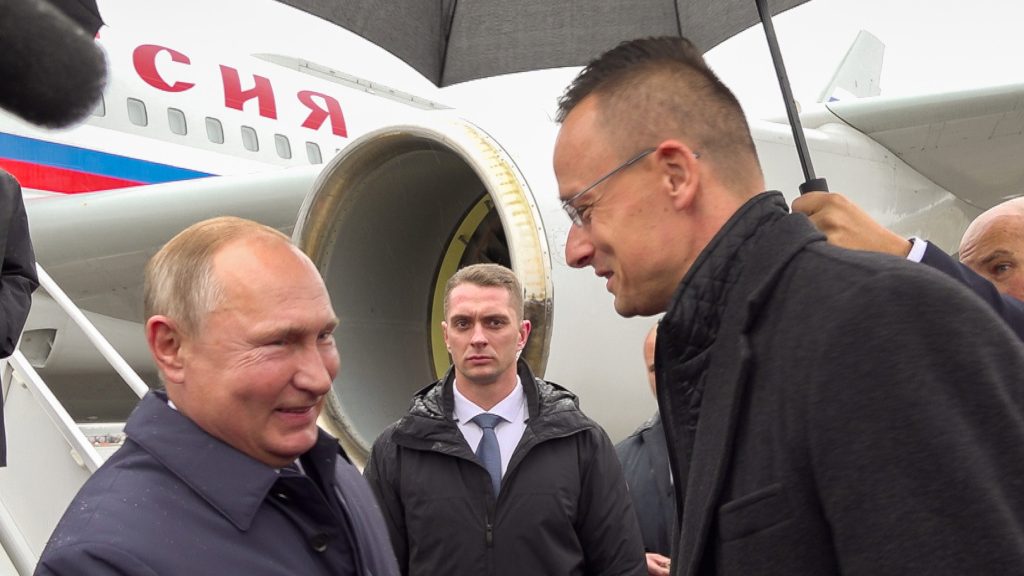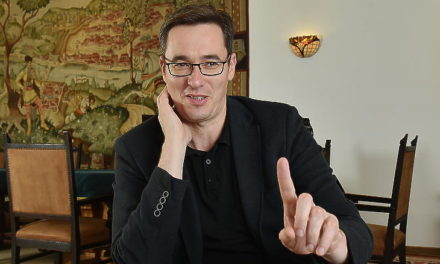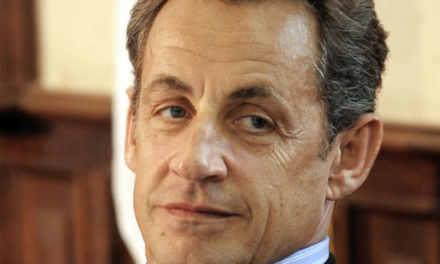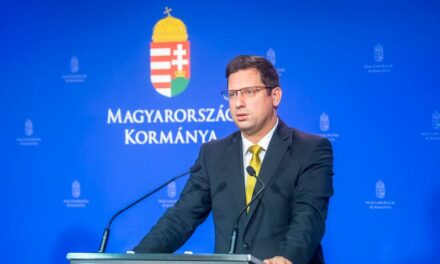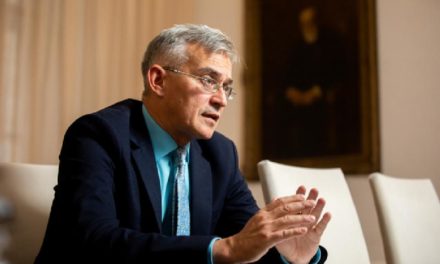If the Ukrainians do not back down from their anti-minority policy, it will severely limit the Hungarian government's ability to provide Ukraine with any kind of support, even in this conflict, Péter Szijjártó said in an exclusive interview with Magyar Nemzet regarding the Russian-Ukrainian crisis. According to the Minister of Foreign Affairs and Trade, while there is war rhetoric in front of the public, fair, sometimes cordial negotiations are taking place behind the scenes between the Americans and the Russians.
- Mr. Minister, his Polish colleague, Zbigniew Rau, recently said that Europe is the closest to war in thirty years. Do we have reason to worry?
– Here in Central Europe, we have suffered the history of the past centuries quite well. We have experienced that when East and West are in conflict, we are usually in trouble. The losers of these conflicts were always the Central Europeans. We absolutely do not want the Cold War and its psychosis to return. We see the East-West verbal warfare, we see how they threaten each other, and this fills us with concern. It is in our national security interest that the United States and Russia understand and consult with each other, because there is no alternative to dialogue.
- Although there is no dialogue, based on the statements, it seems that there is a big problem.
– They are really inciting a war atmosphere in front of the public, which is not good, since the game is playing against our region. Beyond the communications arena, however, the situation appears to be somewhat more moderate: when speaking directly to American or Russian officials, the top-level negotiations appear to be fundamentally fair, normal, and sometimes even cordial in tone. It is reassuring that some kind of normality still exists behind the scenes.
– How did we get to the point where war rhetoric developed in Europe?
– We cannot see into the minds of the actors, we cannot understand exactly all their motivations, so we can only tell them two things: on the one hand, we ask them to talk to each other, and on the other hand, we say very firmly that we do not want to be part of their conflict in this area.
- You recently received an award from Russian Foreign Minister Sergey Lavrov in Moscow for the achievements in the development of relations. Prime Minister Viktor Orbán will hold talks with Russian President Vladimir Putin at the beginning of February. In this tense geopolitical context, how much pressure is there on Hungary from the Western powers to beware of tightening bilateral relations?
"No one can ask us to do that." Not least because those who use warlike rhetoric against the Russians, under the surface, are making huge deals in and with Russia. It is worth looking at the economic data, since sanctions against the Russians have been in force, the Germans and the French have increased their own exports to Russia by many billions of euros.
If we had not built such a fair relationship with the Russians in the last ten or twelve years, we would not have been able to buy Sputnik vaccine in the first place.
Remember, we bought Russian vaccine when the worst coronavirus variants were spreading, and Western vaccines either did not come, or were delayed, or fewer of them came. Second, a few weeks before the gas supply panic broke out in Europe, we concluded the long-term gas purchase agreement. At a good price, taking into account the results of the overhead reduction, gas comes from Russia via two routes in a technologically reliable manner.
We just smile at the position others have maneuvered themselves into with their hypocritical energy policy.
Third: when the demonstrations in Kazakhstan broke out at the beginning of the year, our Western allies could not get the Hungarians stuck in Almaty out. I exchanged a single text message with the Russian foreign minister, and the next day the Russians helped evacuate the Hungarian citizens.
Today, foreign policy should not be conducted on the basis of symbols or ideologies, but on the basis of national interests.
The Hungarian interest is clearly that a pragmatic, normal relationship based on mutual respect must be maintained with the Russians.
You can read the full article in Magyar Nemzet
In our opening photo: Vladimir Putin and Péter Szijjártó 11/18/2021 Source: KKM

